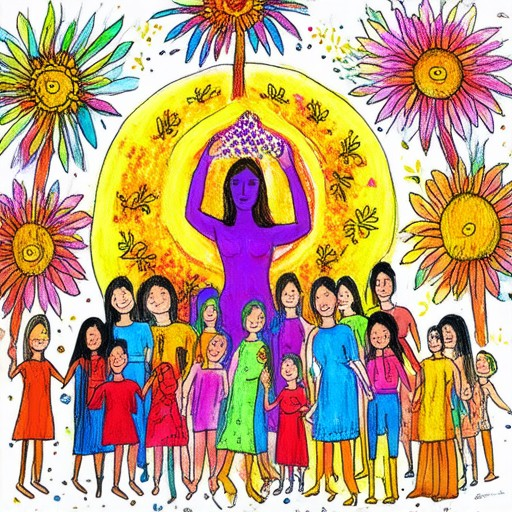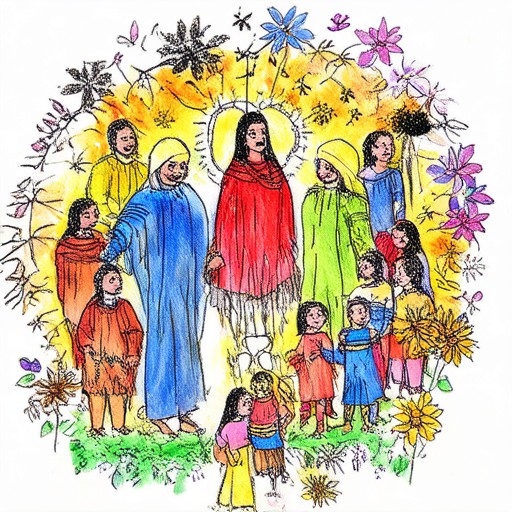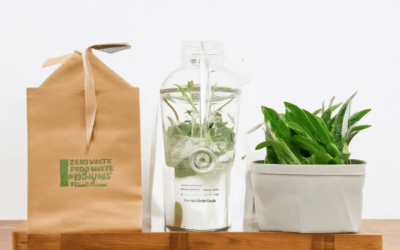In today’s fast-paced world, fostering a sense of responsibility and awareness in our children begins at home. By introducing sustainable family activities, we can help our little ones understand the importance of protecting the planet while creating meaningful memories together. From recycling initiatives to energy-saving practices, small steps can lead to big impacts. Engaging in eco-friendly activities not only teaches kids about sustainability but also inspires them to adopt greener habits as they grow. Whether it’s exploring nature, upcycling old items, or participating in community workshops, sustainable family activities offer a fun and educational way to instill lasting values. Join us as we discover creative ideas that empower families to live in harmony with the environment, one activity at a time.
Family Activities for Every Age: Fostering Eco-Friendliness and Education
- Nature Exploration:
- Plan family hikes or nature walks to explore local ecosystems. Point out different plant species and discuss the importance of biodiversity. This hands-on approach makes learning enjoyable and informative.
- Creative Recycling Projects:
- Utilize recycled materials to create fun DIY projects, such as crafting robots or birds. These activities encourage creativity while promoting the reuse of items, teaching kids about reducing waste.
- Gardening Adventures:
- Involve kids in gardening by growing their own fruits, vegetables, or herbs. This experience fosters a connection to the earth and teaches about growth cycles and food sustainability.
- Interactive Educational Resources:
- Introduce kid-friendly apps, videos, and documentaries that explain sustainability concepts in an engaging manner. These tools make learning both entertaining and effective.
- Community-Oriented Activities:
- Engage in local cleanups or volunteer work to highlight the broader impact of sustainability. This teaches responsibility and the value of teamwork, especially suitable for older children.
- Exploring the Pillars of Sustainability:
- Discuss environmental, social, and economic sustainability. For instance, involve kids in budgeting or organizing a neighborhood green event to understand resource management and community involvement.
- Family Traditions:
- Establish a monthly “Green Saturday” for consistent eco-friendly activities, reinforcing sustainable habits and making it a cherished family ritual.
- Resource Utilization:
- Check out library books on sustainability or seek advice from local organizations to find age-appropriate resources and community programs.
By tailoring these activities to each child’s interests and strengths, we can nurture a lifelong appreciation for the environment and a commitment to positive contribution.

How Can Families Be More Sustainable?
Eco Planeta Verde believes that every family can contribute to a more sustainable future through thoughtful daily actions and practices. By adopting eco-friendly habits and making intentional decisions, families can significantly reduce their environmental footprint while creating a healthier lifestyle for themselves and future generations.
Sustainable Practices for Family Life
- Reduce Waste: Implement a zero-waste lifestyle by composting kitchen scraps, recycling, and minimizing plastic use. Learn more about creating a zero-waste household here .
- Conserve Energy: Turn off lights and electronics when not in use, unplug chargers, and opt for energy-efficient appliances. Discover sustainable product recommendations here .
- Minimize Water Usage: Install low-flow fixtures and encourage shorter showers. Explore water-saving tips here .
- Support Local Economies: Buy locally-grown foods, handmade products, and services from community members to reduce carbon emissions associated with transportation.
- Adopt Renewable Energy: Consider solar panels or wind energy solutions for your home to power your household sustainably.
Eco Planeta Verde offers a wealth of resources to help families transition to a more sustainable lifestyle. From reducing waste to conserving energy, our guides and tips provide practical steps to make a difference. Visit our homepage to discover more sustainable living solutions and join us in our mission to create a greener planet, one family at a time.
Sustainable Activities Explained
Sustainable activities are practices that contribute positively to the environment, society, and economy. These activities aim to reduce harm and promote well-being for future generations.
Key Areas of Sustainable Activities
- Reducing Waste and Preventing Pollution: Recycling, composting, and minimizing plastic use are effective ways to lower waste generation. Eco-friendly habits like using reusable containers and avoiding single-use items play a crucial role in preserving natural resources.
- Conserving Water Resources: Efficient water usage through rainwater harvesting, greywater recycling, and low-flow fixtures helps preserve this vital resource for future needs.
- Promoting Biodiversity: Supporting local wildlife by creating habitats, planting native plants, and avoiding harmful pesticides contributes to ecosystem health and biodiversity.
- Preserving Forests and Natural Landscapes: Sustainable forestry practices, reforestation efforts, and protecting natural habitats prevent deforestation and support carbon sequestration.
- Supporting Local Economies: Purchasing locally-grown products, fair-trade goods, and handmade items fosters community development and reduces transportation emissions associated with imported goods.
- Adopting Renewable Energy Sources: Switching to solar, wind, or geothermal energy reduces reliance on fossil fuels and lowers greenhouse gas emissions.
- Minimizing Carbon Footprint: Reducing energy consumption, using public transport, and embracing telecommuting are simple yet impactful ways to combat climate change.
- Promoting Sustainable Agriculture: Practices like crop rotation, organic farming, and conservation tillage enhance soil health and reduce chemical use, ensuring long-term agricultural productivity.
Why Are Sustainable Activities Important?
Sustainable activities are essential for addressing global challenges like climate change, resource depletion, and social inequality. By adopting eco-friendly practices, individuals can contribute to a healthier planet and a more equitable society.
Getting Started with Sustainable Living
Eco Planeta Verde offers valuable resources to help you adopt sustainable practices. Explore our guide to sustainable living for practical tips and inspiration. Additionally, consider obtaining sustainability certifications to validate your commitment to environmentally responsible practices.
Remember, every small effort counts toward creating a brighter, more sustainable future. Start today and join the movement toward a greener lifestyle!
For more information on sustainable activities and how to get involved, visit our comprehensive guide .

What is a Sustainable Family?
A sustainable family is one that prioritizes living in harmony with the Earth while ensuring the well-being of its members. This involves adopting practices that minimize environmental impact, conserve resources, and promote health and happiness within the family unit.
The Key Characteristics of a Sustainable Family
- Resource Efficiency: Families that use resources wisely, such as water, energy, and food, often engage in practices like composting, recycling, and reducing waste.
- Sustainable Diet: Incorporating organic foods, local produce, and plant-based meals to minimize the carbon footprint associated with food production.
- Renewable Energy Use: Utilizing solar panels, wind turbines, or other renewable energy sources to power the home.
- Zeros-Waste Practices: Implementing systems like zero-waste kitchens and menstrual cups to reduce landfill contributions.
- Community Involvement: Engaging in local initiatives to support sustainability, such as joining community gardens or participating in clean-up drives.
The Benefits of Being a Sustainable Family
- Improved Health: Accessing cleaner air and safer food options through sustainable practices.
- A Legacy for Future Generations: Teaching children the importance of sustainability and environmental stewardship.
- Stronger Community Connections: Building relationships with neighbors and local groups focused on common goals like sustainability.
Financial Savings: Reducing energy and resource costs over time.
How to Become a Sustainable Family
- Start Small: Begin with simple changes like reducing plastic use and turning off lights when not needed.
- Eat Local and Organic: Support local farmers and reduce transportation emissions by purchasing locally grown products.
- Compost at Home: Create a compost pile to recycle kitchen scraps and reduce landfill waste.
- Get an Energy Audit: Identify ways to lower energy consumption and switch to renewable energy sources.
By embracing sustainable practices, families can create a healthier, more affordable, and environmentally conscious lifestyle. Eco Planeta Verde offers valuable resources and guides to help families get started, such as this guide on sustainable living . For more information on reducing waste, check out our waste reduction tips .

Sustainability for Kids Activities
Sustainability for kids activities refers to creating experiences that foster environmental stewardship and responsible resource use. It involves teaching children to care for the planet while having fun and learning important life skills.
Key Components of Sustainability in Kids Activities
- Education : Incorporate lessons on conservation, recycling, and reducing waste into activities.
- Practical Steps : Engage in hands-on activities like planting trees, composting, or upcycling materials.
- Role Modeling : Demonstrate sustainable practices yourself to inspire kids to adopt similar behaviors.
- Community Involvement : Participate in local cleanups or volunteer work to show the broader impact of sustainability.
- Emotional Engagement : Make sustainability fun and rewarding to keep kids motivated.
Fun and Educational Activities
- Nature Exploration : Take kids on hikes or nature walks to learn about local ecosystems.
- DIY Projects : Use recycled materials to create art or gifts, fostering creativity and environmental consciousness.
- Gardening : Help kids grow their own fruits, vegetables, or herbs, teaching them about growth cycles and food sustainability.
The Role of Technology
- Use educational apps or videos tailored for kids to explain complex concepts in an engaging way.
- Explore kid-friendly documentaries about sustainability to spark curiosity and interest.
By integrating these elements, we can help kids develop a deep connection to the environment and a commitment to preserving it for the future.
Green Activities: A Comprehensive Guide
Eco Planeta Verde encourages everyone to take small yet impactful steps toward sustainability. Here are some green activities you can incorporate into your daily life:
- Reduce Food Waste: Plan meals carefully to minimize waste. Consider shopping locally or joining a CSA (Community Supported Agriculture) to reduce packaging.
- Conserve Water: Install water-saving fixtures and rain barrels. Avoid excessive watering for lawns and gardens, focusing on native plants instead.
- Support Local Businesses: Shop at farmers’ markets or local businesses to reduce transportation emissions and promote sustainable economies.
- Compost: Turn kitchen scraps and yard waste into nutrient-rich compost, benefiting your garden and reducing landfill waste.
- Plant Trees: Participate in tree-planting initiatives or start your own tree nursery. Trees absorb CO2 and provide habitats for wildlife.
- Use Renewable Energy: Invest in solar panels or switch to a green energy provider to reduce reliance on fossil fuels.
- Reduce Plastic Use: Opt for reusable containers, cloth bags, and other eco-friendly alternatives to cut down on plastic consumption.
- Support Wildlife: Create bird feeders or wildlife habitats in your backyard, providing shelter and food for local animals.
- Cycle or Walk: Choose public transport, cycling, or walking over driving to reduce carbon emissions and stay healthy.
Eco Planeta Verde advocates for a holistic approach to sustainability, encouraging individuals to adopt these practices consistently. By making small changes today, we can create a healthier planet for future generations.
For more tips and resources, visit our sustainable living guide . Let’s work together to make every day a greener day!

What Are the Three Pillars of Sustainability for Kids?
Sustainability for kids involves teaching them the importance of preserving the environment, building strong communities, and managing resources wisely. These principles form the foundation for a more responsible and informed generation.
Environmental Sustainability
Environmental sustainability teaches kids to respect and protect the natural world. This includes:
- Reducing waste through recycling and composting.
- Conserving water by turning off taps and using water efficiently.
- Planting trees and caring for plants to support biodiversity.
- Learning about energy conservation and using renewable energy sources.
Social Sustainability
Social sustainability focuses on fostering a sense of belonging and community. Key aspects include:
- Understanding the importance of diversity and inclusion.
- Volunteering for local causes and helping neighbors in need.
- Participating in group projects and collaborative learning.
- Supporting fair trade practices and ethical consumer behavior.
Economic Sustainability
Economic sustainability helps kids grasp the concept of resource management. This involves:
- Learning about budgeting and saving money.
- Exploring career paths that align with environmental goals.
- Starting small businesses or creative projects with sustainable materials.
- Understanding the impact of consumption patterns on the economy.
Conclusion
Teaching kids about sustainability equips them with essential life skills. By focusing on environmental, social, and economic sustainability, we empower them to contribute positively to their communities and the planet. Let’s inspire the next generation to take charge of their world!




0 Comments